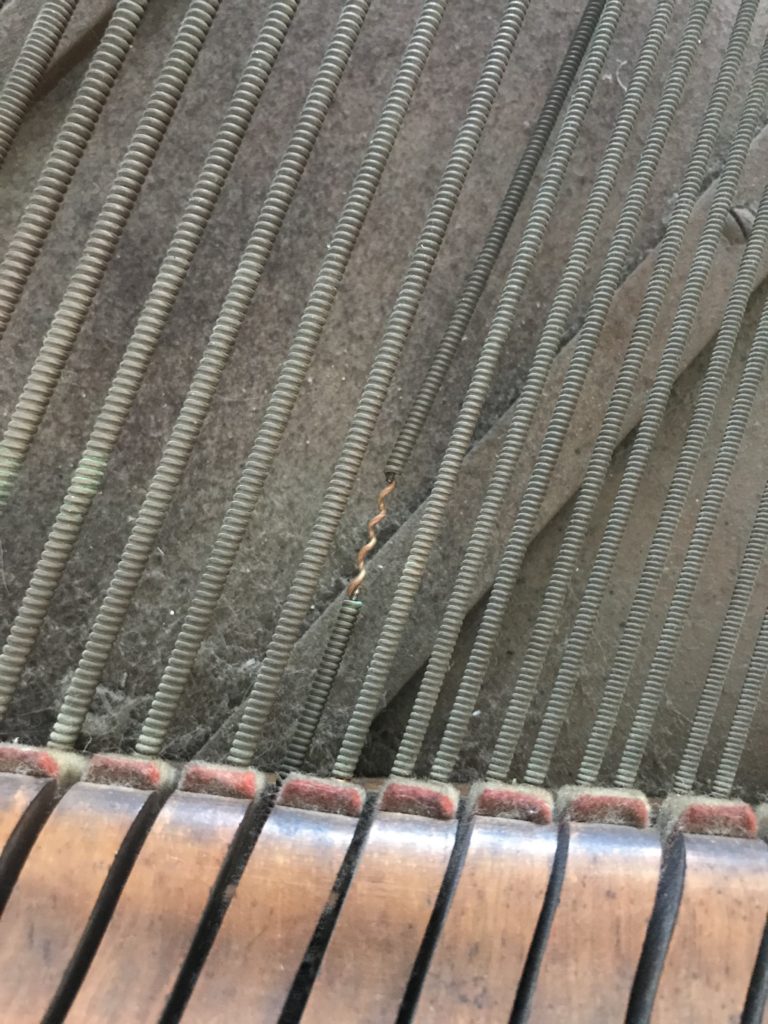You might consider it a simple fact of life that a complex musical instrument made of wood and metal such as a piano will slowly deteriorate with time. What you may not realize is that the rate at which a piano ages is totally based on factors that you can control, and that a well maintained piano will last at least one hundred years, if not longer. In this article we discuss the factors that cause a piano to age, and what you can do to protect your instrument.
The Sun
The first factor that will cause your instrument to age is the sun. Sunlight exposes the piano to ultraviolet rays which will cause the paint to fade, and the wood to crack. In addition to ultraviolet light, the sun produces heat which over time will cause the piano to expand and contract putting stress on the moving parts, and throwing it out of tune. Placing the piano as far as possible from a large window is strongly recommended. If the only space in your home is near a window, a piano cover or large blanket will help greatly.
Accidents
Careless accidents that can easily be avoided are the main reason for the chips, scratches, dents, and dings you see on the outside of old pianos. This may happen when you are moving a large object near the piano and the two collide. Or it may happen when you are moving the piano itself. If you are moving your piano more than a few feet ALWAYS HIRE PROFESSIONAL PIANO MOVERS. If you hire laypeople, or use regular movers, there is a 50% chance your piano will get damaged. You might be thinking, “No problem. Movers are insured.” Think again. I have never known a client to collect after their piano was dropped.
Other common accidents include spilling wine inside the piano, candles melting on the piano, water entering from a leaky roof, plants on the piano overflowing with water, and scratches on the top from photos or other objects. Never put anything liquid on top of the piano. Avoid putting flowers or anything organic on the piano as this will inevitably end up inside. Avoid putting candles on top of the piano. If you plan on putting the family photos or heavy vases on the piano put a cloth cover on the piano first. The best strategy is to put nothing at all on top of your piano, unless it is a cover.
Humidity
Above all else the main factor that will cause your piano to age is humidity. Unlike guitars that respond more to temperature, pianos are much more responsive to moisture in the air. Whenever the air is humid pianos go sharp. Whenever the air is dry pianos go flat. This constant oscillation between wet and dry cycles cumulatively makes pianos go flatter and flatter over time. In addition to making your piano go out of tune, high humidity will cause the strings to rust and break. This results in an expensive repair that costs thousands of dollars. This repair can easily be avoided by taking appropriate measures.

How to Make Your Piano Last Forever
Fortunately although it is difficult to control the humidity level in your house, it is relatively easy to control the humidity level inside your piano. L.A. Piano Tuning can install a humidity control system on your grand piano which costs only $600. This is four or five times less than the cost of restringing. Also included with this package is a full cleaning and a string and cover. For upright pianos the cost is even less at $200. With this system your piano will stay in tune, the strings will maintain their pristine silver color, and your piano will play like new for many decades to come.
